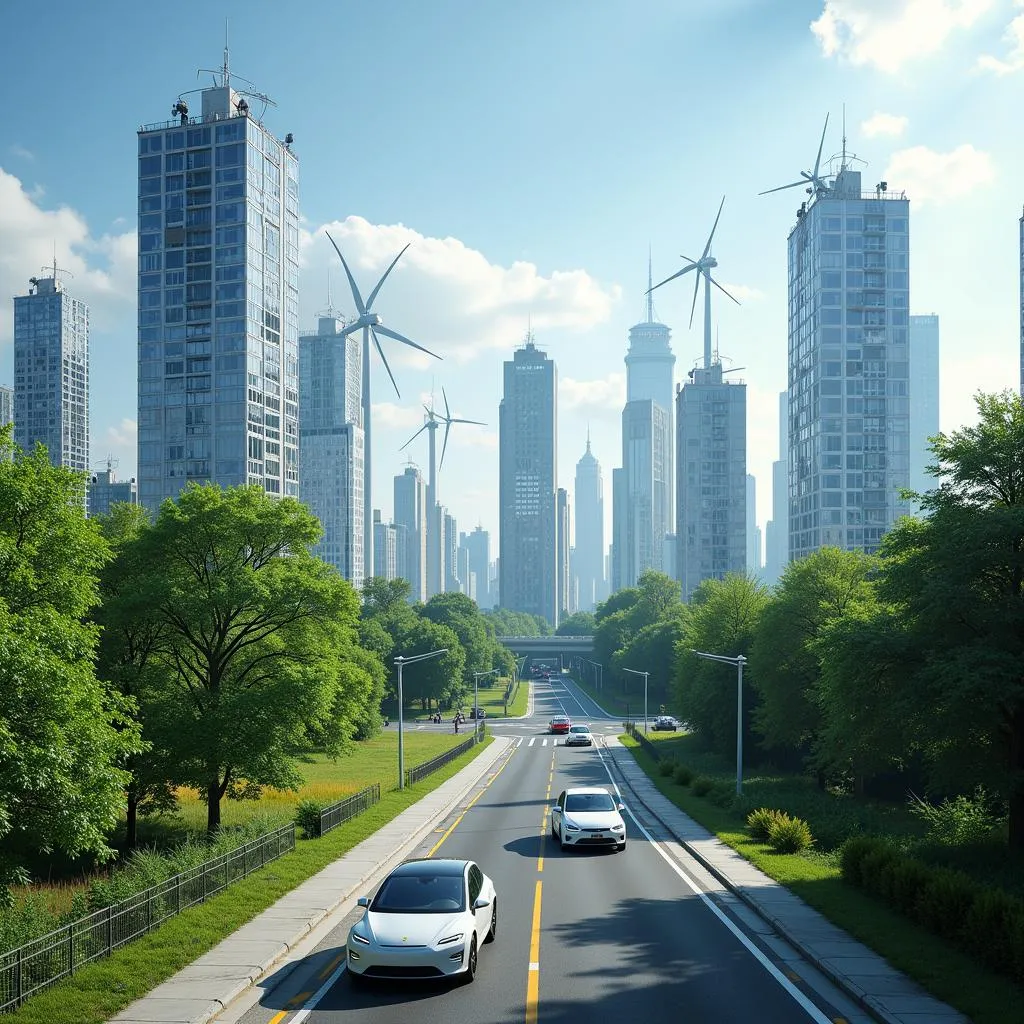An environmentally sustainable society is one that meets the needs of the present generation without compromising the ability of future generations to meet their own needs. This means living within the limits of our planet’s resources, reducing our impact on the environment, and ensuring that everyone has access to a healthy and fulfilling life.
But what does that look like in practice? How can we move from aspiration to action? This article will delve into the core principles of an environmentally sustainable society, exploring practical steps we can take to collectively build a better future.
Key Principles of an Environmentally Sustainable Society
 A bustling city powered by wind and solar energy, showcasing sustainable urban planning
A bustling city powered by wind and solar energy, showcasing sustainable urban planning
Building a society that thrives within environmental limits requires a multifaceted approach. Let’s explore the foundational pillars:
-
Renewable Energy: Transitioning from fossil fuels to renewable energy sources like solar, wind, hydro, and geothermal is crucial to decarbonize our energy systems and mitigate climate change.
-
Resource Conservation: Embracing circular economy principles, minimizing waste generation, and adopting sustainable consumption patterns are essential for preserving natural resources for current and future generations.
-
Biodiversity Protection: Conserving biodiversity is not just about protecting wildlife; it’s about safeguarding the delicate balance of ecosystems that sustain life on Earth.
-
Social Equity: Achieving environmental sustainability goes hand in hand with social justice. Everyone deserves access to clean air, water, and a healthy environment, regardless of their background or socioeconomic status.
-
Sustainable Transportation: Reducing our reliance on private vehicles by investing in public transport, cycling infrastructure, and walkable cities is key to minimizing transportation-related emissions.
-
Sustainable Agriculture: Shifting towards regenerative agricultural practices that prioritize soil health, biodiversity, and minimize chemical inputs is vital for ensuring food security without harming the environment.
Building a Sustainable Future: From Individual Actions to Global Collaboration
 A diverse group of people tending to a community garden, fostering a sense of shared responsibility for the environment
A diverse group of people tending to a community garden, fostering a sense of shared responsibility for the environment
Transitioning to an environmentally sustainable society is not merely a technological challenge but a profound cultural shift. Here are some actionable steps:
-
Embrace Sustainable Practices: From reducing our carbon footprint through conscious consumption to advocating for sustainable policies, every action counts.
-
Support Sustainable Businesses: Make informed choices by supporting companies committed to ethical and sustainable practices.
-
Engage in Environmental Advocacy: Become an advocate for change by supporting organizations and initiatives working towards a sustainable future.
-
Promote Environmental Education: Empowering future generations with the knowledge and values to live sustainably is crucial for long-term change.
Conclusion
Building an environmentally sustainable society demands collective action and a shared vision for a just and thriving future. By understanding the principles of sustainability and embracing both individual and systemic change, we can pave the way for a world where both present and future generations can thrive in harmony with nature.